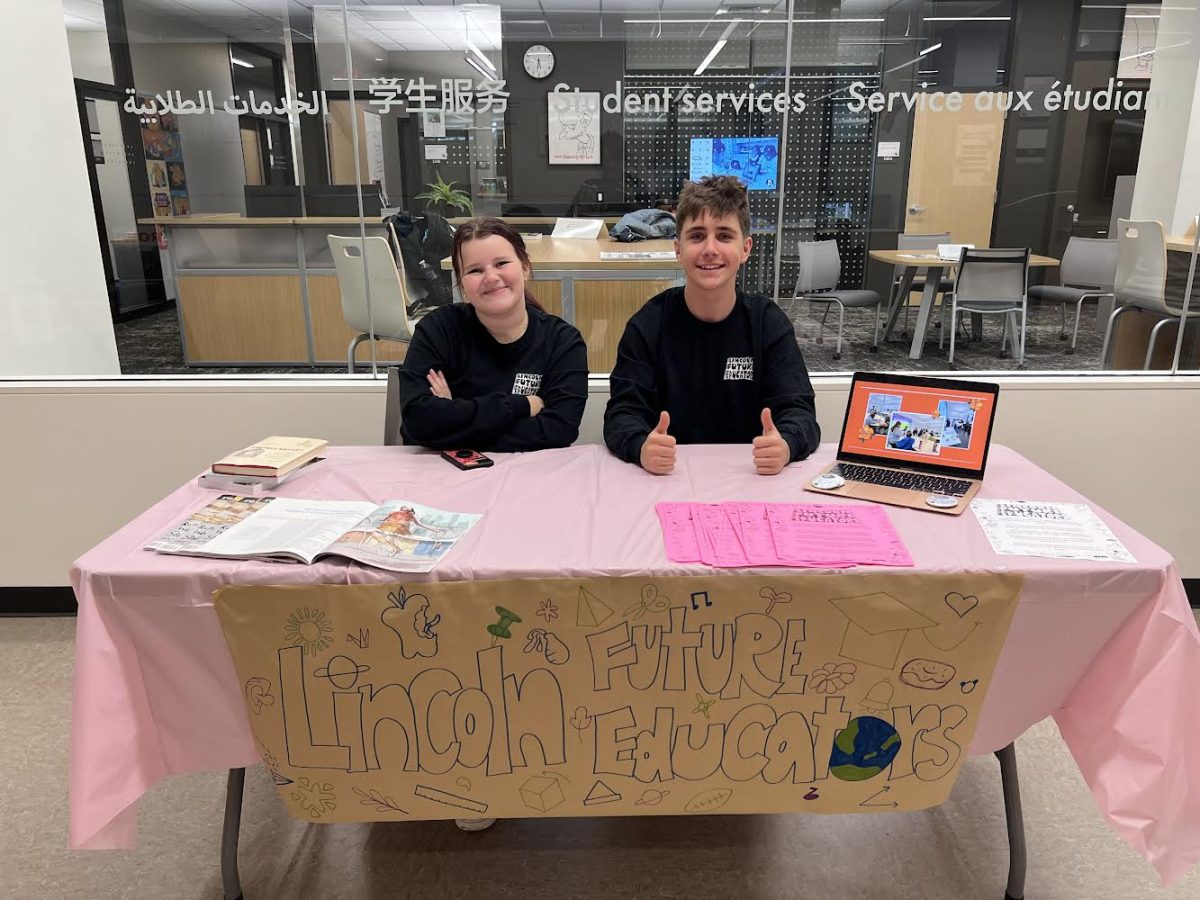Programs aiming to prepare students for a career in education have developed at schools in Portland and around the country. At Lincoln, the Future Educators program offers three years of internship experience, college credit and Career and Technical Education (CTE) honors.
The Future Educators classes are taught by Blair Hennessy, who structures classes around preparing students to work with kindergarten and early elementary students at local schools.
“I really love the partnership between high schoolers and elementary and preschool,” Hennessy said. “It’s such a good match.”
In the first few weeks of school, year two and year three students have had the opportunity to work within classrooms around Lincoln, including the English Language Development and Intensive Skills classes. Year one students have started learning about the teaching experience through interactive activities and discussion.
Senior Audrey Happel is a first year student who has enjoyed the dynamic structure of the class.
“We’ve done a lot of stuff to learn about other teachers’ experiences, what is exciting about being a teacher and what could be some setbacks about it,” Happel said. “The way we do it is very interesting because we play games and then, at the end, come back together to talk about what [the games] can tell us about teaching.”
As a CTE class, Future Educators can be taken for three years as CTE and elective credit. The class can also earn students three free credits from Portland Community College. This year marks the first time the class has had a third year at Lincoln. The program has two inaugural completers, seniors Mathias Clift and Lola Kovel.
Clift’s decision to take Intro to Education was influenced by the positive experiences he has had with teachers throughout his education. These experiences have allowed him to feel more comfortable in a majority female-identifying classroom, along with allowing him to seriously consider a career in education.
“The reason why we see the class being predominantly female identifying is because it’s been so stereotypical that women should be teachers,” Clift said. “I personally feel that the reason a lot of the guys in that class enjoy the class is because Portland is lucky enough to have plenty of male teachers, which then becomes role models for the male students when considering more teaching possibilities.”
According to the Oregon Education Equity Report, in 2022, 85% of Oregon educators identified as white, and 75% identified as female. The Future Educators class mirrors these statistics, with an average of 81% of students identifying as female. Hennessy believes that the demographics of her class showcases the exact need for a program like Future Educators. She hopes it can serve as a reminder that teaching can, and must be, a more diverse field.
“[The class] is mainly female, and it is very white dominated, which makes sense when you look at how teachers are typically white women. But we need more diversity in the teaching field,” she said. “I want to continue to recruit and bring in students who would maybe not see themselves as educators.”
Hennessy believes the class has many benefits for students with any and all career aspirations.
“[Students] learn interpersonal skills, they learn facilitation skills, and I think they learn project management skills,” Hennessy said. “It also becomes like therapy for school. It empowers students because they’re like ‘Oh, I’m not stupid, I’m not dumb, this system has made me feel that way.’ It takes the power away from grades or the factory model.”
All three levels of the class are taught within one period, with 38 students in total. Hennessy says that although challenges have arisen from this structure, the dynamic of the class helps to ensure everything runs smoothly.
“I love the class because it’s so real,” Hennessy said. “I feel like we know each other pretty well, and we have a lot of trust.”

